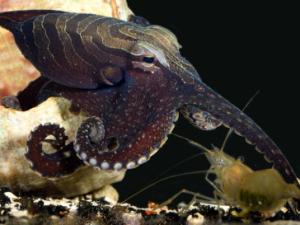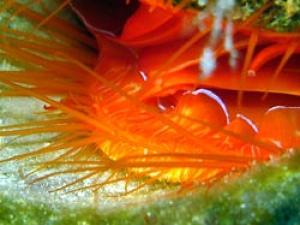

Research Bio
Roy Caldwell's research interests lie in invertebrate behavior and ecology with much of his work centering on the behavioral ecology of stomatopod crustaceans, a group of tropical marine predators. The initial focus of this research was on how the evolution of potentially lethal weapons influenced stomatopod biology. These studies dealt mainly with communication and the function of aggression. More recent research has expanded to include the evolution of mating systems, interspecific communication, sensory ecology, prey selection, the biomechanics of the strike and larval biology. His research group is currently initiating studies on the genetic structure of stomatopod populations attempting to deduce the timing and pathways of dispersal. They have also used stomatopod populations as bio-indicators to assess the health of tropical coastal habitats. He has also become interested in the behavior of blue-ringed and other pygmy octopuses. He is currently studying the reproductive and aggressive behavior of several Indo-Pacific species. Much of his research is centered in the tropical Indo-Pacific including programs at Lizard Island, Moorea, and Indonesia.
Research Expertise and Interest
ecology, evolution, Invertebrates, animal behavior, behavioral ecology, marine biology, stomatopods, crustaceans, cephalopods, octopus, mating systems, communication, sensory ecology, aggressive behavior, coral reef restoration
In the News
Octopus shows unique hunting, social and sexual behavior
Unlike most octopuses, which tackle their prey with all eight arms, a rediscovered tropical octopus subtly taps its prey on the shoulder and startles it into its arms.
Young researcher discovers source of disco clams’ light show
The disco clam was named for the rhythmic, pulsing light that ripples along the lips of its mantle. UC Berkeley graduate student Lindsey Dougherty now reports that the mirror is actually a highly reflective, densely packed layer of silica spheres a mere 340 nanometers across never before seen in animals.


